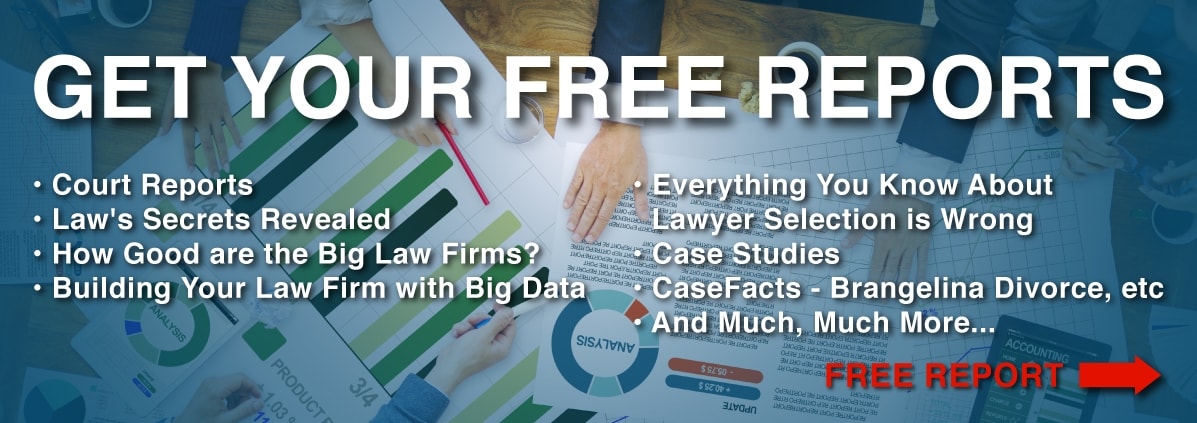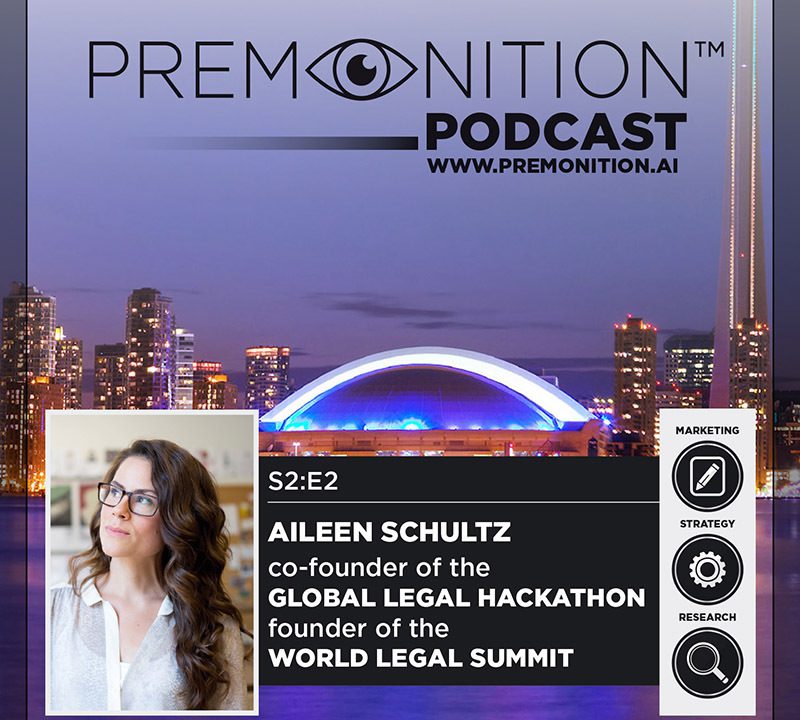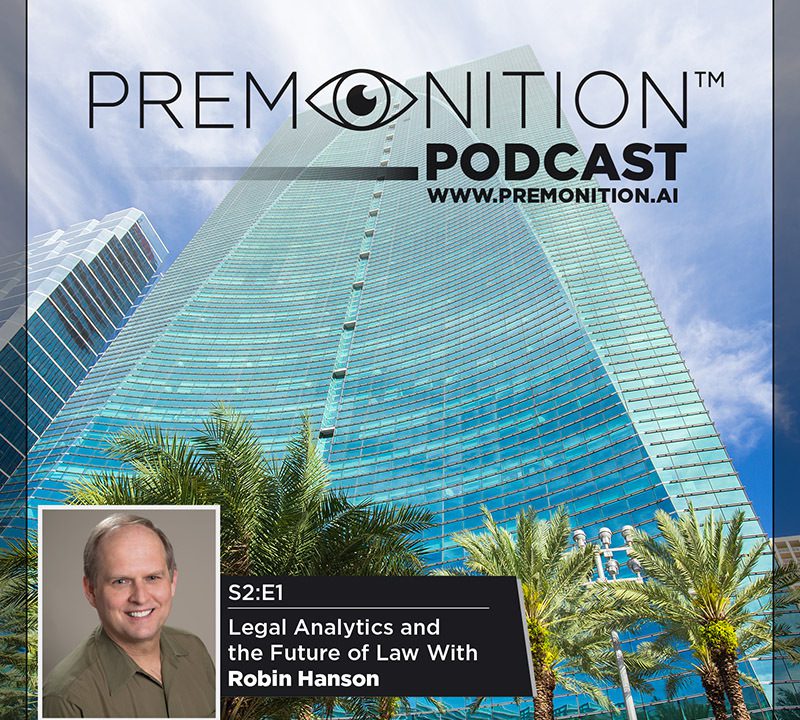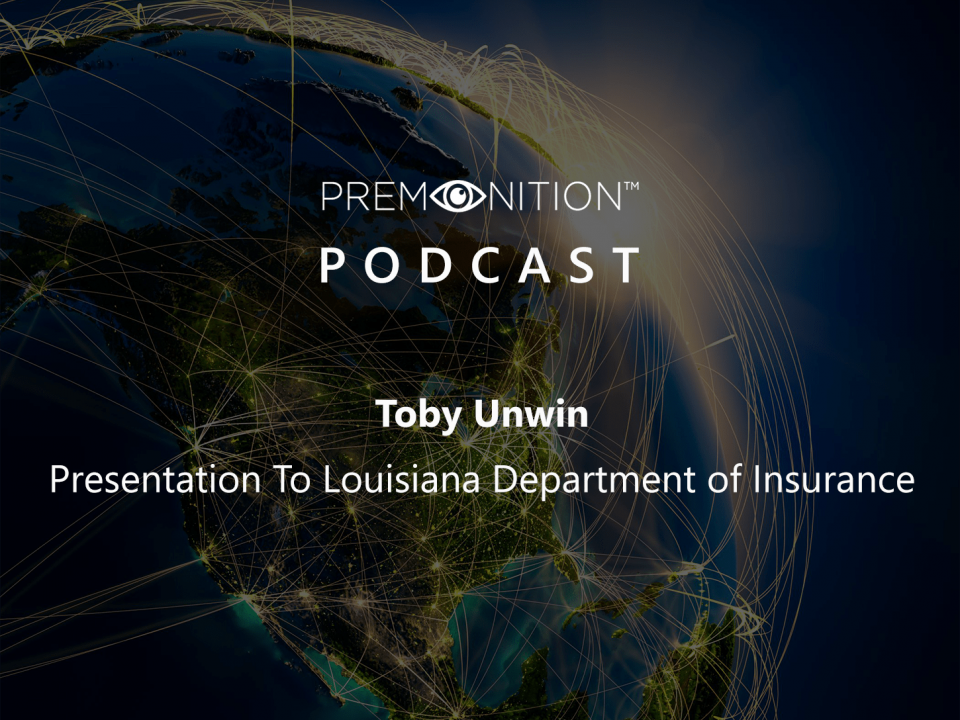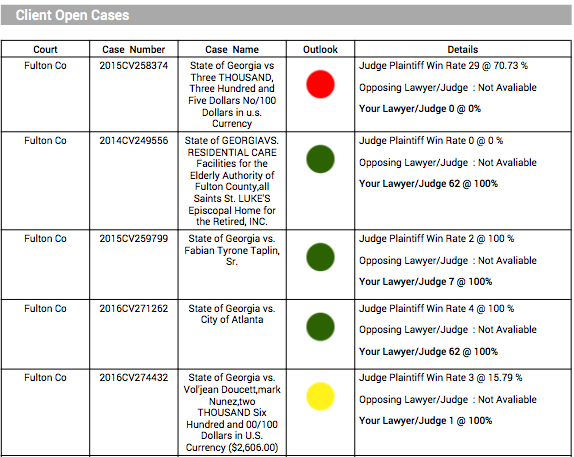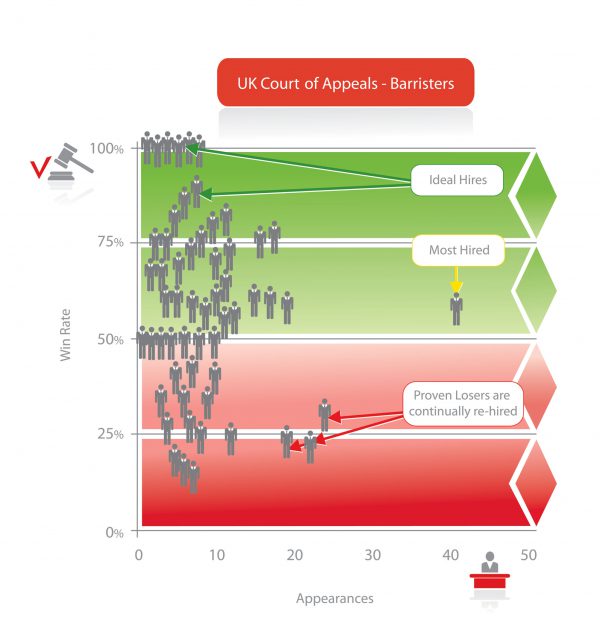In Discussion With …. Richard Tromans, The Artificial Lawyer
In Discussion With …. Richard Tromans, The Artificial Lawyer
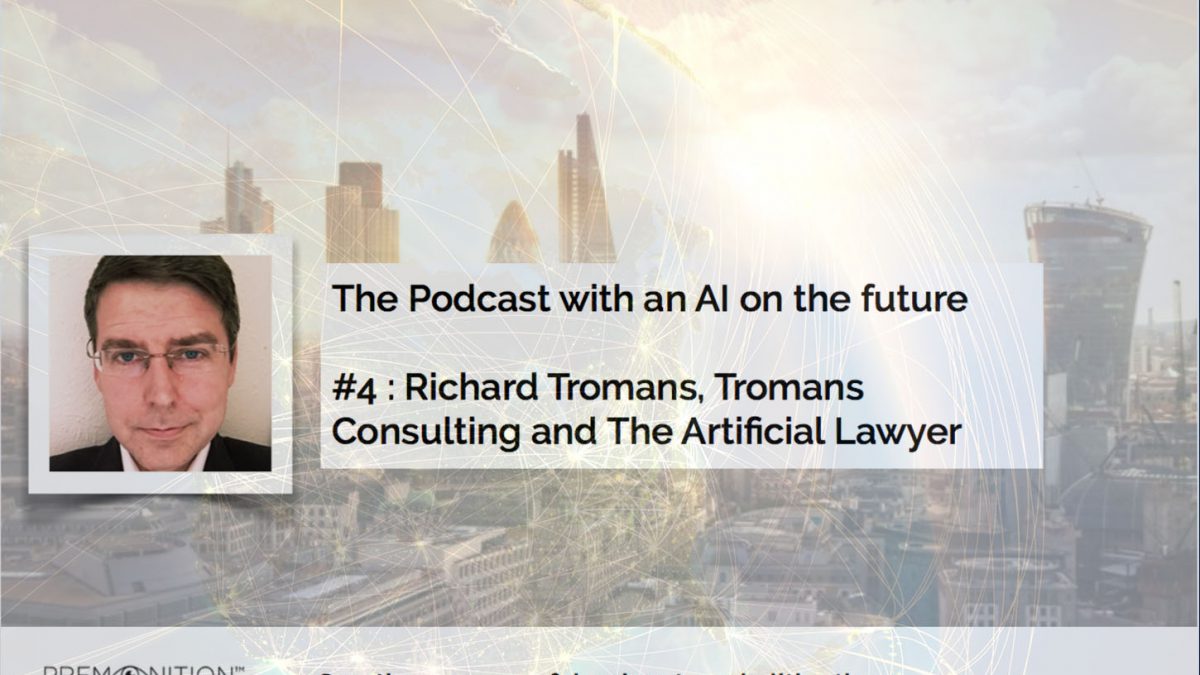
Podcast: Play in new window | Download
Subscribe: Apple Podcasts | Android | Email | RSS | More
Legal AI, What to Expect in 2018 and the Reasons Why We Do, What We Do

Andrew Weaver: Richard Tromans, welcome. It’s Monday, the 29th of January. I’m referring to that day because I’m going to refer directly to an article on your blog today.
Richard Tromans: Hello. How are you doing?
AW: I’m very well. Thank you again for joining us. As I’ve mentioned in the intro, we did try this once before, but the gremlins affected the sound quality, so thank you very much for joining us. I know you’re absolutely flat out, for reasons we might go into briefly later on.
Whilst we were going to have a very headline conversation, Richard, about what we can expect in 2018 within the world of legal AI and automation, et cetera, I’m actually going to pick up on an article that I saw on your blog today, which was related to a question not often asked in the sexy world of legal tech and that’s why? Why are people doing all this stuff? We know the who. We know the what. We get a feeling of where it’s all going, but flesh out the article that you wrote today, Richard, about that particular issue.
RT: In a nutshell, why does legal tech automation, artificial intelligence, and so forth, why does it matter? Why are we so concerned about it? I guess different people have different reasons. Some people are perhaps worried about their jobs. Some people are worried about the pocketability of their law firm. Others are worried about the incessant headlines about AI and having to deal with reality and trying to make even incremental change inside a law firm or an in-house legal team. Those are all totally valid.
I think there’s a bigger why, a bigger question. That is, what is the end goal in all of this? To me, the end goal is justice, because that is what the legal market or legal sector, lawyers, courts, et cetera, all exist for. People want justice. People want justice personally. They want justice for all the businesses that they own and invest in or work for or are employed by. This is the fundamental issue. People who are outside of the legal world do not think in terms of law and lawyers and courts. They think about things in terms of fairness, what is right and wrong. They say, “I have been cheated. I want justice,” or, “I believe that I’m owed something,” or “I have an inalienable right and I’m not receiving that right.” They want justice. We’ve been working with lawyers for many centuries, millennia, and that’s been good up to a point. Now there’s this new wave of technology and that’s tremendously exciting, but fundamentally, none of it really matters unless it is delivering justice on a societal level, because that’s what we’re all here for. Isn’t it?
If we’re excited about legal technology because it makes a couple of people rich or it shaves off 1% from the bills of in-house legal departments but are spending hundreds of millions of dollars, I don’t see the point. We might as well pack up and go home. That’s just not a good enough reason to get out of bed in the morning. There has to be a bigger reason. There has to be a better why. To me, that better why is access to justice. I don’t just mean in terms of refugees seeking asylum. I mean right across the piece from the poorest person on earth to the richest corporations on the planet. There are access to justice issues all the way up. For example, imagine if you’re a shareholder, imagine if it’s just simply you have an insurance policy or a pension, some of that money is going into corporates who are then not really doing very much to manage how their internal lawyers are spending that money.
I said it on record many times and to other people in conversation, I do believe that the in-house legal teams, excluding the new Legal Operations executives who are doing fantastic work, like [CLOC 00:05:25]. The traditional internal legal departments, I believe, are doing a terrible job of spending money on external legal services. They have the buying power and they have access to all kinds of things internally. They are not really putting pressure in the right way. They’re not analysing their law firms. They’re not analysing the illegal spend. They’re just not doing what they could do. There’s a whole raft of tools which are coming out. I can understand why they can’t keep up, most of … even legal technologists can’t keep up with daily announcements. I mean, today, there’s been two announcements of two new applications. Tomorrow there’ll be two more. How do you keep up? Totally understand, but something needs to change and these … it all comes together. It all comes together, because it offers a chance to improve the legal system for the good of all.
AW: Well, I’m going to pick up on two things then, Richard. One is very close to my heart and it’s one of the reasons I got involved in legal tech, but there’s a statement within your blog today about approximately 70% of SMEs, and I know this to be true through research I’ve done separately, don’t use lawyers. They’ll sweep things under the carpet. They will do everything they can to avoid using a lawyer. Lots of reasons, cost being an obvious one, but also fear of where cases go. It’s such a kind of time warp that people go in. There’s so much asymmetric information in using a lawyer and using legal services where you just don’t know where it’s going to go. Fear and cost and all of those kind of things put people off.
I’m slightly concerned at the moment about whether any of these people on the ground level are actually getting the impact; getting any real impact on all this legal tech stuff. Is the trickle down happening? If you think it is, where? And if you think it isn’t, how can we accelerate getting to the people who perhaps need it the most?
RT: I think it’s patchy, but I do see room for some hope. I mean there are some great things going on in the US for example. There’s a lot of effort being made there to support legal bots that will provide some, at least, basic support for people who would qualify for Legal Aid. There’s some great work going on there. You got people at Joshua [Browder 00:07:47]. I mean, he, if anything, he has really made people aware of what you can do. You’re not solving complete legal problems, but solving elements of legal problems and saying, “Come on guys. You do not have to be so inefficient. There are ways through this.”
The simple answer is, is that the average man or woman on the street, the legal world remains incredibly complicated. Understandably, the legal tech companies like AI companies that are coming onto the market now, they have to make a living. They have to go where they’re going to get money; where they’ve got a compelling business case, so they focus on things like M and A due diligence, which is not much interest to the average person. That’s where, initially, they will get some income. That’s where they’ll get started. If you were in an expert system company, again, where is the money to be generated? In the commercial legal space.
It’s probably true to say it’s not just in the commercial legal space of lawyers, but that in itself is split, because you’ve got the commercial legal space of lawyers in private practise and then you’ve got the commercial lawyers who are working inside corporates. Most of the AI companies that I’ve seen at any rate, are working primarily in conjunction with law firms, they’re not working with the corporates. Most of them do some work with the corporates, but then that raises another question is, why? Because most of the AI companies that I talk to, if you said, “Hey, would you like to go work with BP or Barclays or Morgan Stanley,” they’d say yeah, they’d bite your arm off, but they’re not all being asked. Why is that? Probably because the top table has got other things to worry about and the in-house legal team doesn’t want to rock the boat; likes things as they are.
AW: Likes things to remain inefficient, as you’ve highlighted before.
RT: They don’t wake up in the morning and rub their hands with glee and say, “Yippee! How can I make this more wasteful, more time consuming, more painful for the shareholders of this company that employs me?” Obviously, no one does that. You’d have to be a maniac to think that, but unconsciously and implicitly, that’s what we’re allowing to happen.
It’s like an aristocracy. The aristocracy didn’t wake up in the morning and go, “How can I terrorise the peasants this morning? How can I exploit the current socioeconomic status quo for my own benefit?” It just was as it was. The sun came up in the morning, they were sitting in their palaces, out there were the peasants, and they were pretty happy with the way things were looking. Of course, then people got wise to it and chopped their heads off. You know.
I think that it’s a slow, slow revolution. That may be an oxymoron, I’m not sure if you can have a slow revolution. Maybe a slow revolution is an evolution. Things are changing and things have to change, because fundamentally, why is anyone doing any of this? Even something as what now is actually relatively mainstream, using natural image processing to conduct an M&A due diligence exercise, because you have a ton of documents. The amount of documents grows every year relatively. It makes sense to use this. Why does it make sense to use this? It only makes sense to use this because open-ended, high cost hourly rates do to that work don’t make any sense. Again, but why?
Because it all sounds kind of natural when we’re talking about it and the average person on the street will say, yeah, of course, it’s obvious, isn’t it? Until very recently, until 18 months ago, it wasn’t an issue really. It was just something the general council kind of go, “Hmm, I wish there was a better way of doing this, but there isn’t, so it doesn’t matter. Let’s carry on.” I think this is the fundamental thing. I think we’re only, only really just starting to grasp it really; these bigger issues. What is it all about? Why are we doing this? Also, we get distracted, and also rightly distracted. There’s a tonne of people who work inside law firms, and there’s a few who are very vocal and, quite rightly so, who get incredibly angry and annoyed about all the talk about all these AI systems and all these whatever it is, because they just look at their law firm and they think, Jesus, can we just get on with this? Can we actually just make some real changes internally? Can we improve the processes in a really substantive way?
You know, some of them are making great inroads internally. That draws the debate in that direction and then you’ll talk to some senior equity partners and they’ll be just like, “Well, I’m getting out of this. I’m going to be retired soon. I don’t particularly want to pay much attention.” You have this mass of different issues. Then you’ve got the whole ethics and AI for good crew, who, again, all totally valid, but it’s all just drawing us away from the central issues, which is why on earth are we doing all of this? What is the societal benefit?
AW: I completely agree. I think we all get a bit lost in that when we’re thinking of all these new wonderful products to be putting on the market. My particular passion is increased transparency. Getting those people on the lower level of the consumer line, I guess, the SMEs, the individual purchasers of products, and allowing them to get the benefits of some of this technology that’s coming down. Then, as you say, of course, the AI companies are going to want to work with the people that pay the bills, but hopefully, there’s an acceleration towards the man or the woman on the street or the smaller business.
Richard, I’m very aware that you are engaging with the legal tech event in New York, so I don’t want to take up too much more of your time, but can I just move it on a little bit then to this more generally in 2018. We’ve bedded down the new year. We’ve all got ourselves over the Australian flu, or I have, anyway. What do you think is going to happen this year, talking of the next stages of the evolution of AI and automation?
RT: Yeah, well I think it’s multiple things. One, we’re going to see more collaborations as we’ve seen today, for example Kira and NetDocuments. NetDocuments is a DMS. Kira is a AI doc review system working together. IBM Watson working together with Thomson Reuters to create Q and A tool for data privacy. A kind of expert system, research system using machine learning, but a combination. I think that is the way to go. I don’t think any single individual tech company has got all the answers. I think we’re going to have to see a lot more cooperation and coordination and different types of AI systems, different types of process automation system put together.
I think another thing, as well, and you have to agree with them that there has to be a greater focus on process, on awareness of legal data, of understanding how the bits connect and actually trying to get real outcomes. I think there is a genuine risk that people do a pilot with a AI system and then it just sits there. I get the same experience, I’ve noted the same experience as a strategy consultant, which is my day job, as you know, at Tromansconsulting.com where I’m advising law firms on a variety of issues. In the past, not while working at Tromans Consulting, obviously, but in the past at previous consultancies I’ve worked at, there were cases where a strategy document would be drawn up, everyone would vote it in, and almost nothing would be done, because the reality between buying in … some consultancy provides you with a beautiful strategy document, and actually executing it in a way that changes your behaviour as an organisation, are two radically different things.
That really is to some degree where we are now with legal AI technology. Now, I’m not saying every firm is like that. I don’t believe that for a minute. I’ve met many firms who are doing fantastic work, who are using AI systems in multiple practise areas; they’re using expert systems, they’re using different types of document automation. They’ve got internal process people, innovation people, who are doing all kinds of great work. Joining it all up, bringing in the lawyers, even senior partner level, getting everyone integrated into this and driving it forward. There are some great examples like that. There’s also a whole bunch of firms who have just done pilots and there’s no real innovation going on inside. The business change team internally, they’re probably tinkering with a bit of document automation and it’s kind of not really having a big impact. That needs to be addressed. I really hope that 2018 we’ll see that change. Hope that the good news stories, the good examples will act as a benchmark for everyone else to follow.
AW: Just a quick last question, actually because I saw it on your Twitter feed earlier. The legal tech incubators that have emerged over the last year or two. Are you seeing some great potential coming out of those?
RT: Yeah, yeah. I think initially, I, and everybody else we were a little bit, and like the firms who actually hosted them, were a little bit unsure what would happen, but I think the proof is in the pudding. I’ve done two extensive interview pieces; one with Allen & Overy and one with Mishcon de Reya who did two very successful incubators. It’s been tremendous. It really has been tremendous. It’s a win-win, because the startups get to learn what the lawyers really want and what their clients wants, and the lawyers really start to think more laterally and pragmatically about what is there. They stop, I think, hopefully, stop seeing tech as like this thing that you buy, that is delivered to you in a box that you plug in, maybe it’s useful, maybe it’s not and seeing it as just something that you can integrate into whatever you’re working. It becomes more organic. I think it has been tremendously good.
It’s interesting to see that Mishcon has now brought a couple of clients into the mix who will both be sponsoring part of the incubator and also getting involved with a bit of mentoring, which is tremendously good for everyone. Again, because then, the lawyers, the client, and the tech companies all start to see that their interests are aligned and can work more efficiently together.
I think that’s a great move, because I think, going back to my previous point, the greatest risk to all of this, this new wave of legal techs, I call it, the greatest risk is that people just see it as a bunch of stuff in a catalogue that they buy. They buy it in, you know, you probably, you remember the … [inaudible 00:18:52] hold you up, but in the ’80s you used to get these catalogues pushed through the door full of fitness machines and stuff that could make waffles or bread or all this kind of stuff. These really cool things. You know, sometimes you buy them … I guess it’s been replaced by The Shopping Channel now on TV. You buy these things and you use them once. They’re kind of okay, but you couldn’t really see the case for using them on a regular basis. Then it would go back into the kitchen cupboard and it will stay there forever and then eventually it will get thrown out and taken to a charity shop. I think that is the biggest risk. That is very, very, very biggest risk.
Certainly, some of the AI companies I’ve got to know, they got a fantastic track record. Nearly every, if not all of their clients are using it in a regular way. There are other that are not, I think that is the thing; real use. Real use is only going to happen when all the different parts of the firm and the clients are aligned. You can have an innovation team that’s brilliant, but if the lawyers aren’t buying it, it makes not difference. Vice versa, you can have a bunch of lawyers who are really are up for it, but if its support mechanism, its IT people, its innovation people, its process management people have no real desire to help, it’s going to die.
AW: Yeah, well that’s why the most interesting feedback there, certainly with the Mishcon’s one is the engagement with all … quite a wide variety of stakeholders, not least the lawyers themselves. That’s really pleasing to hear isn’t it?
RT: Absolutely, because at the end of the day, I mean, again, it goes back to my very, very original point, justice. How do we get justice? We get justice by engaging with lawyers. How do lawyers succeed? Lawyers succeed by engaging with everything at their means possible to delivery that service to clients. If the lawyers disengage from the potential benefits of technology, then, nothing’s really ever going to change. It’s just going to be noise and headlines and a few pilots here and there and some very frustrated innovation people jumping up and down at the back of the law firm. We-
AW: Those innovation people have been jumping up and down frustratedly for many years I suspect, but perhaps there’s a sea change going on in terms of engagement.
RT: I think there is. I think there is. It’s like all parts of the legal market, it’s highly unconsolidated and it’s highly nonuniform. You can walk down a major street in the city full of different law firms and the experience of legal technology in each of those different law firms, it would be radically different. Radically, radically different and the attitudes and the types of technology they’re using will all be very, very, very, very, very different. They’ll all be using document management systems, billing systems, all of the sort of day-to-day mundane stuff, which doesn’t really have any strategic impact.
When we look at the more interesting stuff, the technology that actually performs work, AI systems, automation and so forth, then we are in a different scenario. I think perhaps the simplest way of putting it is despite all the headlines, despite us actually having ridden at the height curve, and actually now coming down the other side of it already, in terms of AI and technology, it’s very, very early days. It really is. I mean, for me, I always use the analogy of the personal computer. For me it’s like 1977, 1978 max. I think that’s as far as we got. We’re at the personal computer stage of when people were still screwing circuits onto blocks of wood.
AW: Yeah. Richard, you keep referring to these decades that I’m sure the millennials have no relationship with at all, which I think is giving away your age and mine, because I remember the ’70s and ’80s in very much the same way.
Richard, I’m going to thank you very much indeed. I’m conscious of the time we’ve taken up from your day. I know you’re engaging with New York and the legal tech event over there. Artificial Lawyer blog is the blog, frankly, that I go to first for any information and news about this kind of stuff. The amount of content you put onto that site is phenomenal, Richard. I don’t know where you find the time, to be honest. It’s kind of relentless.
RT: I usually get up at about 5:30.
AW: Do you?
RT: That’s one way of doing it.
AW: Well, it’s admirable. It’s an impressive blog. Anybody who wants any more information, sign up to Artificial Lawyer blog. I’m also slightly mesmerised by the video on your Twitter feed, which is showing me a combination of beef and lettuce, Richard. I would prefer to have had a visual on the avocado on toast.
RT: Yeah, I will try rectify that and get some avocado on toast images up as well.
AW: Well, if you want to know what that’s all about, it’s about collaboration and how different things go together, and two plus two equals five.
Richard, thank you so much for your time.
RT: My pleasure. Take care.


